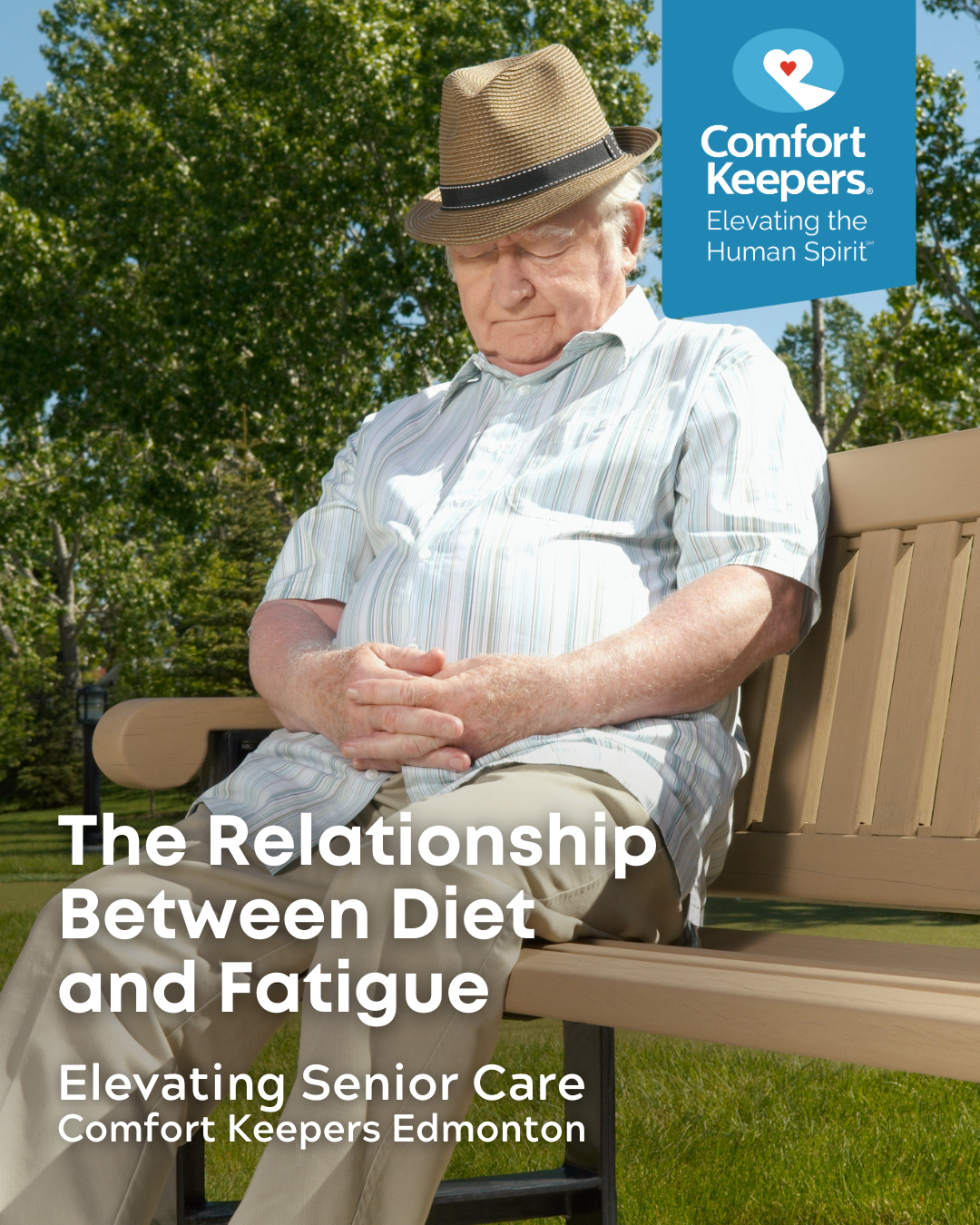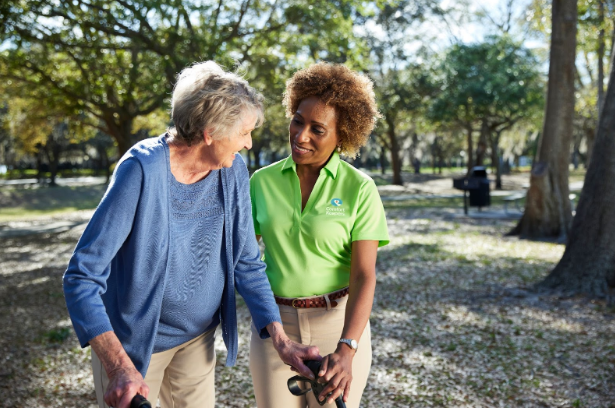The Relationship Between Diet and Fatigue
Senior Health | March 5, 2021

What Every Senior in Edmonton, AB, Needs to Know About Diet and Fatigue
The Relationship Between Diet and Fatigue | The adage “you are what you eat” is well known, but have you ever really thought about what it means? We all know a heavy pasta meal might make us tired in a few hours. Sugar gives some a rush, and caffeine may provide a temporary energy boost. But the cliché delves much deeper than that. “You are what you eat…” is one of the best pieces of advice you may find for maintaining good health. As healthy eating continues to push to the forefront of newsworthy topics, more Canadians of all ages are learning the value of consuming proper, well-balanced diets.
Healthy eating cultivates good overall health; it potentially helps ward off some medical conditions; and it positively affects other conditions. For instance, those with diabetes can maintain better health when they follow the correct diet for that disease. People with high cholesterol can help improve that condition when following nutritional guidelines that aid in decreasing cholesterol levels.
The Relationship Between Diet and Fatigue: Benefits of Healthy Eating
Healthy eating is beneficial in other ways, both medical and non-medical, including battling fatigue. Knowing this may be of particular interest to the senior population who are prone to experience a lack of energy and increased fatigue due to medical conditions, medications, and the aging process, in general. To make it easy to understand, this analogy may help: your body needs the proper amount of nutrients to function best, very much like a car needs gasoline. Without a continual supply of nutrients and sufficient calories needed to perform both physical and mental activities, your body can become sluggish and tired daily. The subsequent lethargy can leave you feeling much like you have run out of gas.
The good news is – provided your lack of energy is not caused by a medical condition or medication – fatigue can easily be addressed by learning to eat well-balanced meals and snacks that contain enough calories and nutrients to keep your body in optimum health. Even if fatigue is caused by an underlying condition, medication, or stress, eating well can help boost energy levels and counteract excessive tiredness.
Simply eating to stave off hunger during the day is not sufficient. Also, keep in mind that if your body outperforms its caloric intake, this can cause increased tiredness. The foods that you choose to eat are essential. However, overeating can also cause fatigue, as it causes the digestive process to work overtime and can contribute to feelings of lethargy. The key to healthy eating is choosing key foods that contain adequate nutrients and consuming these meals or snacks in appropriate portions.
The Relationship Between Diet and Fatigue: The Right Foods
Nutrient-rich foods that can help fight fatigue are not hard to find. Opt for plenty of fresh fruits and vegetables. Vegetables should not be overcooked, as doing so causes a loss of nutrients. Red meat and spinach provide needed iron, while fish such as tuna or salmon contain omega-3 fats – all of which help fight fatigue. Proteins can also be obtained by consuming fish, lean meat, and beans. Nuts offer a protein boost and are a good snack choice. Choose whole-grain pasta, rice, bread, and cereal to complete a well-balanced, fatigue-fighting diet.
The Relationship Between Diet and Fatigue and Your Senior Loved One
If you suspect your fatigue is due to poor eating habits, changing your diet may be all you need to feel energized daily. However, there are medical conditions that can cause fatigue. It is important to discuss this with your care provider to determine if your fatigue may be due to an underlying health issue. In the meantime, feel free to pursue healthy eating habits because the result will be a healthier you!
Comfort Keepers® Edmonton is Proud to Offer a Wide Range of Home Senior Care Services
Our trained caregivers will ensure your loved one is comfortable, independent and safe in their home. On top of that, we will also aim to enhance their overall health, quality of life and general happiness.
Top-Notch Home Healthcare for Seniors in Edmonton, Alberta
Comfort Keepers of Edmonton offers a wider range of senior care services. We offer retirement care, respite care, senior care, companionship care, end-of-life care, post-surgery care, palliative care, personal care, and senior living transition services. If you are concerned about the health and well-being of your aging loved ones we can help with 24-hour care and more!
Helping Seniors Age-in-Place with Companionship Care and Interactive Caregiving™
Empathetic care starts in the heart and allows us to meet our client’s needs. Our trained caregivers are selected with one specific quality in mind, empathy. We strive to stimulate our clients emotionally, mentally and socially, thus enhancing their overall quality of life.
Our Interactive Caregiving™ provides a system of care that addresses companionship, safety, nutrition, mind, body, and activities of daily living (ADLs). The system increases seniors’ sense of well-being, independence and companionship by focusing on Senior Mind, Senior Body, Senior Nutrition, and Senior Safety.
Affordable and Client-Directed Homecare is Available for Qualifying Albertans
Comfort Keepers® Edmonton is an Approved Service Provider for the Client Directed Homecare Invoicing (CDHCI) Program Offered by Alberta Health Services.
What is the Client Directed Home Care Invoicing Program (CDHCI)?
CDHCI is a great program provided by Alberta Health Services (AHS), allowing clients to choose an approved agency like, Comfort Keepers Edmonton for Personal Care, Respite Care and Homemaking needs. The chosen agency can then bill AHS directly for services rendered for approved hours through Alberta Blue Cross. Read more about the program HERE.
Accredited Home Care Edmonton
Comfort Keepers® Edmonton was awarded the “Accredited with Exemplary Standing” seal by Accreditation Canada. This honour demonstrates Comfort Keepers’ commitment to offering safe, high-quality home care to its senior clients in Edmonton, AB.
To learn more about senior in-home care in Edmonton, contact the Comfort Keepers® office. Our service territory includes Edmonton, Devon, Sherwood Park, Stony Plain and surrounding areas, contact the Comfort Keepers Edmonton office at 780-465-4665.
References:
Andrews, Jill. Livestrong.org (2011). Food to fight fatigue. Retrieved on March 22, 2012 from http://www.livestrong.com/article/375604-food-to-fight-fatigue/.
Tree.com. Healthy eating: diet and fatigue. Retrieved on March 22, 2012 from http://www.tree.com/health/chronic-fatigue-treatment-diet.aspx.
Psychologytoday.com (2003 / 2011). Fighting fatigue with diet. Retrieved on March 22, 2012 from http://www.psychologytoday.com/articles/200310/fighting-fatigue-diet.
Individualized Home Care Options
Long-Term Home Care, 24 Hour Home Care & Short Term Care Options Customized for You







